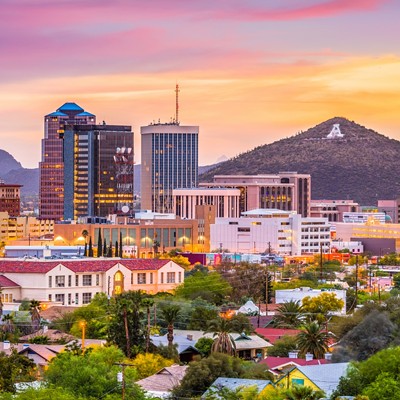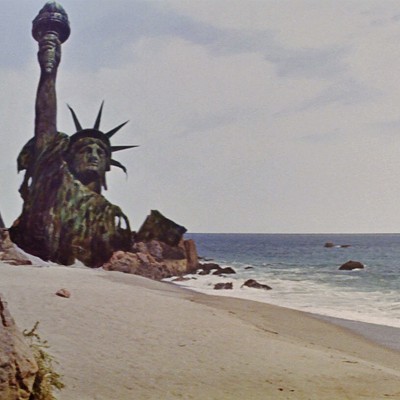But that was then, and this now. Today, the mere mention of the word "mining" can draw immediate ire, sending normally tranquil people into an angered frenzy.
Take for example what happened in January 2006. Copper-mining giant BHP Billiton mailed letters to landowners in the Dragoon Mountains, between Willcox and Benson, announcing the company's intent to explore the surface of their properties for evidence of mineralization. While the project has since been abandoned, residents still remain wary--and shocked that they don't necessarily have all the rights to their own land.
Sue Bishop, wife of Rick Bishop, chairman of the Dragoon Conservation Alliance, said the property owners were frustrated and angry when they received the letters from BHP Billiton.
"They basically told us, 'We're going on your property, and there's nothing you can do about it. You're home is not your castle,'" she said. "And now we (residents) want to change the mining laws that allowed this to happen."
BHPB had staked claims to the mineral rights with help from the 1916 Stock Raising Homestead Act, which provided free land to homesteaders raising livestock--but didn't give the landowner the mineral rights.
BHPB's mining-exploration partner, General Minerals Corporation, had also filed claims on about 5 square miles of federal land, adjacent to private land, in the Dragoon Mountains.
These were staked on both Bureau of Land Management and Coronado National Forest properties under the Federal 1872 Mining Act.
By February 2006, meetings between Dragoon residents and BHPB's Jeff Parker, director of environmental and community affairs, and Brock Riedell, a company geologist, were heated--at best.
"I know you don't want us here; we got that," said Parker at a meeting, during which about 130 people jammed into the Dragoon Women's Club to air their concerns and to show their disdain for the possibility of copper mining in the Dragoon Mountains.
Residents said they were concerned that a mining operation would cause property values to plummet. They were also worried about potential safety and environmental issues, along with protecting the area's water.
The discussion at the meeting at times was "scary," Bishop said. One irate man said: "Bring the rigs. Bring them on my property, and bring your own body bags."
At the meeting, Parker continually pointed out that the exploration was in the "very preliminary stages" and did not necessarily cement mining operations in Dragoon. He also said that animosity on behalf of residents was to be expected.
"I understand people's passion around their homes and their concerns, and this is a process that takes a while to earn understanding of what we're doing. We need to keep giving people information," he said after the meeting.
At the meeting, Riedell said: "By mid-April (2006), we'll know more about whether there's high mineralization that can lead to more drilling, and we will post the results of the drilling on our Web site and any other place you want. There are some deposits of copper, gold and nickel here. We don't intend to explore on private land, and we only filed those homesteading claims for a buffer to the east of town and to prevent another company from coming in adjacent to our interests. But the odds of there ever being a mine are very small."
In April 2006, the results came in--and Riedell's words ended up ringing true. General Minerals Corporation announced the termination of its agreement with BHP Billiton on the Dragoon property.
A notice on GMC's Web site said that "after completing the initial drill program consisting of three diamond drill holes on the property, BHP Billiton has elected not to proceed with the project."
Last month, Parker gave an update of BHPB's activity in the area.
"We brought in an exploration group over a year ago and did reconnaissance in the area. We drilled several (three) explorative drill holes. The results were that there was nothing of economic importance for BHP Billiton, and we abandoned the drill holes," he said.
Since that time, the company has reclaimed the drill pads by filling and back-filling the holes, reseeding the land and inspecting periodically to be sure the vegetation has established itself, Parker said.
"We retain the (mineral-rights) claims for one year, and after that, one of three things will happen: An assessment will determine whether we keep the claim, turn it over to a different entity, or let it lapse," he said.
Claims for lands under the Homestead Act lapse in 60 days.
"The interest in the area is essentially over. There is no current activity, and I don't foresee any activity in the future," Parker said.
Despite BHBP's current status, and Parker's claims that the drill holes have no impact on groundwater, some residents still are wary. Sue Bishop said she doesn't really know what the companies can or can't do.
"The drilling makes us very nervous. They could crack our aquifer and drain all the water out. We don't know. An earthquake in the 1880s caused a free-running spring to dry up, and the mines in Tombstone flooded."
In a Sky Island Alliance publication, Rick Bishop said the law pertaining to mineral rights "needs to be changed."
The publication points out that mining companies are taking advantage of the Stock Raising Homestead Act, and there are no environmental provisions, which leaves the taxpayers to clean up the mess mining companies leave behind.












